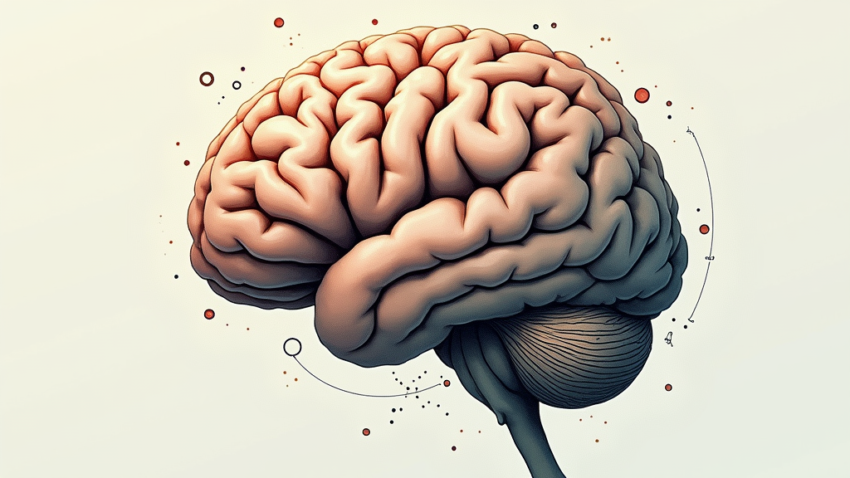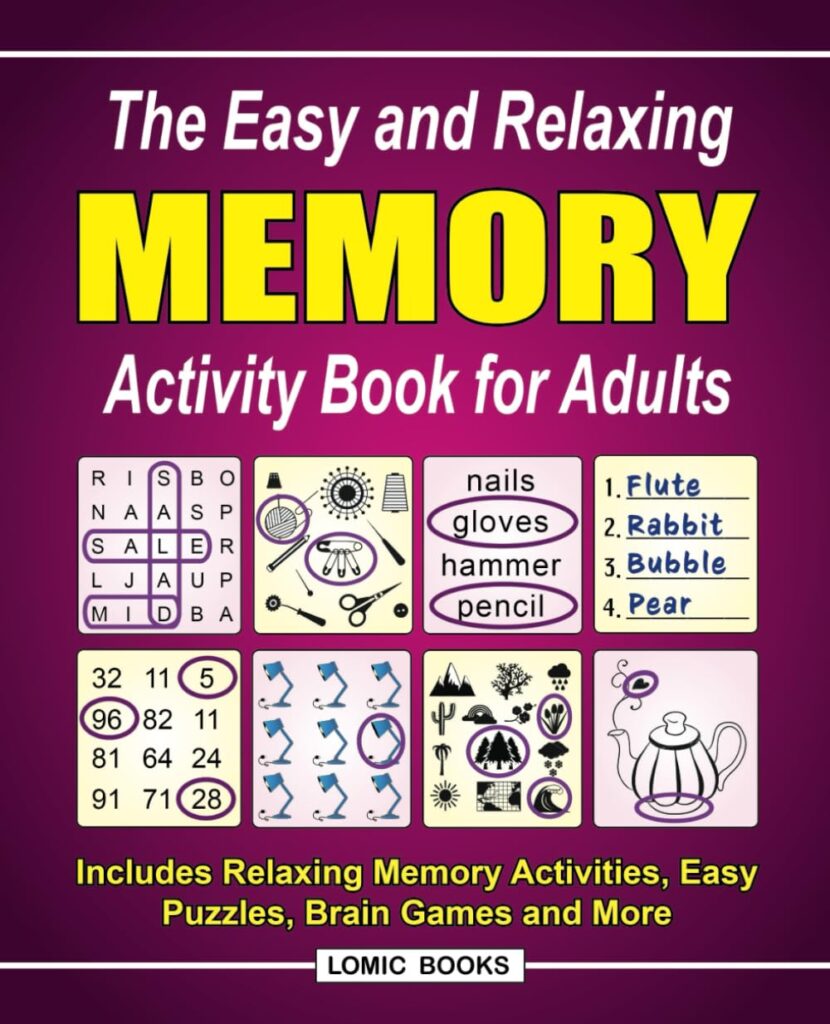Understanding what causes memory loss as you age can be a nerve-wracking topic, but it is a natural part of life for many aging seniors.
Memory shifts are common as we grow older, but they’re not all the same. Understanding the types of memory loss can help you figure out what’s normal, what’s not, and what you can do to stay sharp.
This article reviews the various factors that lead to memory decline, the biological changes that occur, and some practical ways to manage and slow down these changes.
Common Myths and Facts About Memory Loss
What causes memory loss? There are many opinions surrounding memory loss with age, though not all are backed by scientific research. A common myth is that memory loss is inevitable and completely irreversible.
Although some level of cognitive decline is common, numerous steps can be taken to improve and maintain memory function.
Another mistaken belief is that forgetting important details always signals the onset of a serious brain disease. Often, occasional forgetfulness simply reflects the brain’s natural response to aging or environmental stresses.
Many studies show that regular mental challenges combined with a healthy lifestyle can result in marked improvements, even as one grows older.
- Myth: Memory loss always signals a serious disease.
Fact: Occasional forgetfulness is normal and does not necessarily indicate a neurological disorder. - Myth: Once memory problems begin, nothing can be done.
Fact: With proper lifestyle adjustments and cognitive exercises, many individuals can maintain robust memory function well into their later years. - Myth: Only medication can help manage memory loss.
Fact: A balanced diet, regular exercise, and consistent mental activities are equally effective strategies for supporting brain health.
What Causes Memory Loss and Forgetfulness as You Age?
Let’s be honest—aging can be a wild ride. Let’s take a deep dive into the causes and symptoms of memory loss in aging adults.
Memory Loss Symptoms and Causes
One minute you’re rattling off phone numbers like a walking Rolodex, and the next… you’re standing in the kitchen wondering what you came in for. Sound familiar?
That kind of forgetfulness isn’t necessarily a red flag, but it can be a sign that your brain’s going through some age-related changes. So, what causes memory loss and forgetfulness as you get older? Well, buckle up, because it’s not just “getting old”—there’s more to it than that.
As you age, your brain naturally slows down a bit. The cerebral cortex, the part of the brain responsible for memory and attention, tends to thin out.
Connections between brain cells start to fade, and the production of key chemicals that help you think and remember things clearly—like dopamine and acetylcholine—takes a hit.
Combine that with reduced blood flow, and it’s no wonder your memory sometimes feels like it’s running on dial-up………..
Notice that as you get older, factors such as reduced blood flow, changes in the structure of brain cells, and a decrease in the production of vital chemicals all contribute to memory challenges.
Now, not all memory glitches are created equal. In fact, there are different types of memory loss, and not all of them are part of “normal aging.” Some changes are totally expected, like short-term memory problems (Where did I put my glasses again?).
Others could be signs of more serious stuff, like cognitive decline or even early signs of memory loss tied to neurological disorders.
Lifestyle factors can also play a significant role – poor sleep, high stress, certain medications, and even a vitamin deficiency can make those “senior moments” way more frequent.
What Causes Memory Loss?: Key Biological and Lifestyle Factors
So what’s really messing with our memory? Turns out, what causes memory loss and forgetfulness isn’t always some dramatic medical condition—it’s often a mix of biology and the way we live our day-to-day lives.
What Causes Memory Loss? Biological Culprits You Can’t Ignore
Let’s start with the stuff going on under the hood. As the brain ages, it’s not just slowing down—it’s physically changing. We’re talking things like:
- Reduced blood flow to the brain, which affects how well oxygen and nutrients reach those hardworking neurons. Think of it like a city with traffic jams—things just don’t run as smoothly. As blood vessels narrow or become less flexible with age, the brain receives less oxygen and nutrients. This lack of resources may impair memory formation over time.
- Loss of connections between brain cells (aka synapses). This weakens the brain’s ability to store and retrieve information, especially those little everyday details. With fewer synapses, communication among brain cells becomes less effective, often resulting in memory lapses that can be frustrating in daily life.
- Chemical shifts also play a significant role. For example, levels of neurotransmitters like acetylcholine, which are essential for memory and learning, generally decline as we age. This drop can affect how memories are formed and later recalled.
- Hormone imbalance, especially changes in estrogen and testosterone, can mess with memory processing.
- Then there’s the big one: neurological disorders. Conditions like Alzheimer’s disease, dementia, and traumatic brain injury are major players in more severe types of memory loss.
What Causes Memory Loss? Lifestyle Choices That Sneak Up on You
Now here’s where it gets personal. Over the years, I’ve realized some of the stuff we think is harmless actually adds fuel to the forgetfulness fire:
- Sleep deprivation: Skimping on rest? Your brain doesn’t get the deep-cleaning it needs to form and store memories.
- Chronic stress and brain fog: Living in constant go-mode can fry your focus and memory like an overcooked egg.
- Poor nutrition: A serious vitamin deficiency, especially in B12, can throw your memory off balance faster than you’d think. Poor diet, lack of exercise, and insufficient sleep are all linked to a decline in cognitive function. Conversely, healthy habits can support and protect brain health in the long run.
- Alcohol-related memory loss: Yes, even those “just a couple” glasses of wine can add up over time.
- Medication side effects: Some prescriptions can cause mental clarity issues without you even realizing it. Sometimes, medications or chronic illnesses further contribute to these chemical imbalances, making everyday memory tasks a challenge.
- Oxidative Stress: The build-up of free radicals damages brain cells, a process that may speed up memory loss if not countered by antioxidants in the diet.
- Inflammation: Chronic inflammation, often tied to lifestyle factors, can disrupt cognitive processes including memory, making routine recall more difficult.
When these biological and lifestyle factors team up, they can cause both short-term memory problems and longer-lasting forgetfulness. And while a little absent-mindedness might just be a fluke, persistent issues could point to deeper cognitive decline.
But here’s the good news: just because these factors exist doesn’t mean you are doomed. Let’s explore how to recognize the different types of memory loss—and most importantly, what you can do about them.
Tackling Memory Loss: 9 Practical Tips That Actually Work
Here’s the thing—memory issues don’t usually come out of nowhere. Most of the time, they sneak up on us, nudged along by the everyday grind, a few health hiccups, and, let’s be honest, some not-so-great habits we’ve picked up over the years
Many people notice that everyday stressors and health challenges can amplify memory issues. For anyone concerned about memory loss, let’s examine both environmental and personal factors that might play a role, and then adjust daily routines to better support cognitive health.
🌪️ Healthy Routines: The Daily Stuff That Make Forgetfulness Worse
Establish daily routines that include balanced meals, regular physical activity, and consistent sleep patterns to support overall cognitive function.
If you’ve ever walked into a room and totally blanked on why you went in there, you’re not alone! Stress, lack of sleep, and just plain overwhelm can really turn up the volume on what causes memory loss and forgetfulness. But here’s what I’ve learned: most of it is manageable—once you spot the culprits.
Start by looking at your environment and personal routines. Are you juggling too much? Skipping meals? Watching your blood pressure rise every time you open your inbox?
Chronic conditions like diabetes, high blood pressure, and high cholesterol? Yes, they’re part of the puzzle too. They mess with blood flow, which means your brain isn’t getting the oxygen and nutrients it needs to do its thing. And the meds you’re taking for those conditions? Some of them come with side effects that can cloud up your thinking.
🛠️ Small Changes, Big Payoff
The good news? You don’t need to flip your life upside down to protect your brain. Here are a few habits I’ve picked up (sometimes the hard way) that have helped me and others keep those neurons firing:
🥗 Diet: Eat Like Your Brain Depends on It
Fuel your mind with foods rich in omega-3 fatty acids, antioxidants, and essential vitamins—especially B-complex ones. Think leafy greens, fatty fish, berries, and the occasional square of dark chocolate (for science, of course).
Social Engagement
Remaining socially active can help lower stress levels and promote mental well-being, both of which positively affect memory.
Mindfulness Practices
Techniques such as meditation can help reduce stress while increasing focus and memory accuracy.
Medical Consultation: Regular check-ups with a healthcare professional can help identify underlying health issues that might be impacting memory, offering an opportunity for early intervention.
🚶♀️ Exercise: Move It or Lose It
Regular exercise isn’t just good for your heart—it boosts blood flow to the brain and helps build new neural connections. A brisk walk, gentle yoga, or even dancing around the kitchen counts. (Bonus points if you do it while listening to your favorite throwback playlist.)
🧩 Mental Stimulation
Engaging in puzzles, reading, or learning new skills keeps the brain active and helps maintain cognitive sharpness. Puzzles, word games, learning new hobbies—these aren’t just fun.
They keep your brain active and help ward off cognitive decline. Personally, I started learning to play the ukulele at 65—and no, I’m not ready for open mic night, but I swear it’s sharpened my focus.

😴 Prioritize Your Sleep
Consistent, quality sleep is non-negotiable. It’s when your brain files away memories and resets from the day’s stress. Missing sleep? Say hello to brain fog and forgetfulness.
Medical Consultation
Regular check-ups with a healthcare professional can help identify underlying health issues that might be impacting memory, offering an opportunity for early intervention.
Conclusion: What Causes Memory Loss?
By addressing these biological and lifestyle challenges head-on, you can slow or even reverse certain types of memory loss. Remember, memory isn’t just about holding onto the past—it’s your brain’s way of helping you stay sharp for the future.
It is important to remember that individual differences mean that what works well for one person might not be as effective for another.
Paying close attention to personal responses and modifying routines accordingly can lead to the best outcomes in maintaining cognitive resilience over time.
Looking Ahead: Embracing Healthy Aging
Memory loss should not overshadow the many positive aspects of growing older. It’s important to keep in mind that every brain is unique.
While it is natural to experience slower recall or occasional lapses, engaging in regular physical and mental activities can help keep your mind agile.
Routine check-ups with a healthcare provider and staying informed about changes in memory allow for early intervention when needed.
Instead of fearing these changes, embracing them as a normal part of life and using strategies to maintain brain health is incredibly empowering.
Related Articles
FAQs about What Causes Memory Loss
Below are a few questions that often arise when discussing memory loss:
What causes memory loss and forgetfulness?
Memory loss and forgetfulness can be caused by aging, stress, poor sleep, medications, or chronic health conditions like diabetes and high blood pressure.
Can stress cause memory loss and forgetfulness?
Yes, chronic stress raises cortisol levels, which can interfere with memory formation and recall over time.
What are common memory loss symptoms and causes?
Common symptoms include forgetfulness, confusion, and trouble concentrating. Causes range from aging and medications to vitamin deficiencies and neurological issues.
What causes memory loss suddenly?
Sudden memory loss may be triggered by head injury, stroke, infection, or a reaction to medications. Seek medical attention if it occurs abruptly.
Are there ways to reverse memory loss?
While some aspects of memory decline are tied to the normal aging process, adopting a healthier lifestyle and engaging in regular mental exercises can improve memory performance.
References
National Institute of Aging (2023) Memory Problems, Forgetfulness, and Aging https://www.nia.nih.gov/health/memory-loss-and-forgetfulness/memory-problems-forgetfulness-and-aging




